Iranians Hold Rally In Brussels On Death Anniversary Of Mahsa Amini
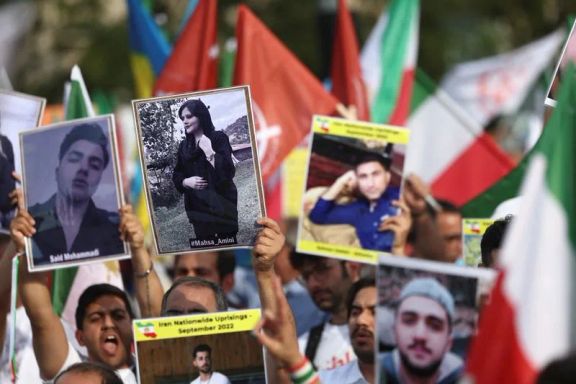
Iranian expatriates marched in Brussels on the eve of the first anniversary of Mahsa Amini, a 22-year-old woman whose death in custody ignited Iran’s biggest anti-regime protests.

Iranian expatriates marched in Brussels on the eve of the first anniversary of Mahsa Amini, a 22-year-old woman whose death in custody ignited Iran’s biggest anti-regime protests.
Thousands of demonstrators, holding up pictures of Amini and many others killed in the protests, called for the overthrow of Iran's theocracy and the establishment of a democratic republic.
Organizers said they had also demanded a unified European Union policy to hold Iran's Shiite clerical rulers accountable for abuses.
Iranian communities in several European cities have kept several rounds of rallies in support of protests in Iran and to demand the closure of Islamic Republic’s missions in Europe.
The protests that followed the death of Amini, arrested for allegedly flouting the Islamic Republic's mandatory dress code, spiraled into the biggest show of opposition to the Iranian authorities in years.
Over 500 people including 71 minors were killed, hundreds injured and thousands arrested, rights groups say, in unrest that was eventually crushed by security forces.
The Tehran government has accused the United States and Israel and their local agents of fomenting the unrest to destabilize Iran.
Iranians are bracing for rallies on Saturday while regime forces have been deployed at strategic regions. Heavily armed military forces have been stationed in restive areas, particularly in Kurdish majority cities, and anti-riot police forces are mushrooming on streets of major cities.
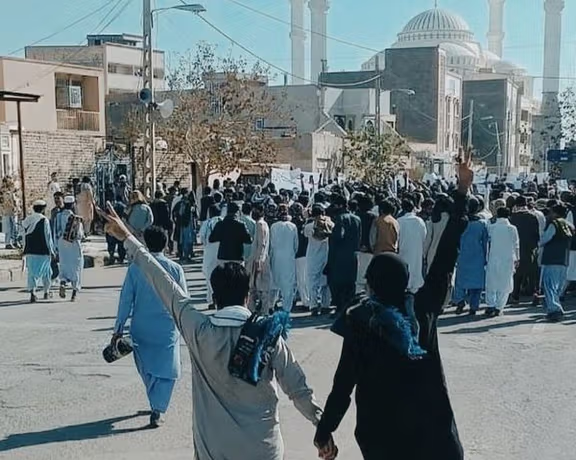
The people of Zahedan in southeastern Iran continued their weekly protests on Friday, on the eve of anticipated rallies for the anniversary of Mahsa Amini's death in custody.
This marked the 50th consecutive week of street protests in this Sunni-majority city following sermons delivered by their Friday prayer leader, Mowlavi Abdolhamid.
During the demonstrations, participants voiced their discontent with the regime and its leader, Ali Khamenei, while also displaying signs of support for the upcoming Saturday rallies. The Revolutionary Guards and its paramilitary wing Basij were among the targets of their slogans. Reports on social media indicate that several individuals were arrested during Friday's demonstrations.
The Sunni leader of Zahedan, known for his passionate criticism of the regime, addressed Mahsa Amini's death during his Friday sermons. Her death on September 16th last year at the hands of the morality police sparked months of anti-government protests, constituting the most significant opposition against the Islamic regime since its establishment in 1979.
"Why should someone be killed for not wearing a hijab?" Abdolhamid questioned, highlighting that protesters are not subjected to lethal force or violence elsewhere in the world. Approximately 600 people lost their lives during the regime's crackdown on protests, with hundreds suffering injuries that resulted in blindness or permanent damage as security forces opened fire on demonstrators.
Abdolhamid implicitly referred to a recent meeting between Iran's Supreme Leader and a group of Baluch people aimed at pacifying the community, which has been protesting since the government's violent crackdown last September, known as "Bloody Friday." On September 30, 2022, about 100 citizens, including women and children, lost their lives due to direct gunfire from military and security forces, with many succumbing to head and chest injuries.
Abdolhamid appealed to the authorities, urging them to release political prisoners and ensure justice is served for the perpetrators of Bloody Friday if they genuinely aim to ease tensions within the community.
Commending what he referred to as an "awakening" in Iranian society, the outspoken cleric stated, "Today, Iranians from all backgrounds, ethnicities, and religious affiliations have united" against 44 years of failed policies by the Islamic Republic. He asserted that "awakening signifies the commencement of victory and progress for any nation."
Similar sentiments were echoed by other activists and community leaders, including Iran's exiled prince, Reza Pahlavi, who interacted live with people through his Instagram page later in the day. Pahlavi, a prominent figure in the current wave of protests, emphasized that individuals from all walks of life and regions of the country have collectively rejected the Islamic Republic.
The son of the last Shah of Iran, who has long advocated for a secular and democratic Iran rather than a monarchy restoration, has been engaging in international outreach efforts to garner global support for what he terms the "Iranian revolution." He reiterated his call for a substantial turnout during Saturday's protests, asserting that "freedom is within reach" if people unite against the regime.
In recent weeks, the regime has intensified its efforts to suppress dissent as part of a broader intimidation campaign aimed at discouraging protests, resulting in the arrest of dozens of individuals this week. Security measures have escalated in anticipation of the first anniversary of Mahsa Amini's death and the start of the Women, Life, Freedom protests. Heavily armed military forces have been deployed in restive regions, particularly in Kurdish-majority cities, and anti-riot police forces have become increasingly visible on the streets of major cities.

As Iranians are bracing for rallies on the anniversary of Mahsa Amini, whose death birthed Iran’s biggest protest movement, regime forces have been deployed at strategic spots.
Security has gone beyond precautionary measures just one day before the first death anniversary of Iranian-Kurdish woman Mahsa Amini and the creation of the Women, Life, Freedom protests. Heavily armed military forces have been stationed in restive areas, particularly in Kurdish majority cities, and anti-riot police forces are mushrooming on streets of major cities.
Social media is exploding with hashtags related to the uprising and walls of cities are replete with graffiti against the Islamic Republic and leaflets of calls for demonstrations are being widely distributed while the regime is exhausting measures to prevent huge gatherings.
Armed forces have an extensive presence in Kurdish-majority cities like the hometown of Mahsa Amini Saqqez as well as Marivan, Bukan, and Sanandaj, where anti-riot vehicles are stationed at main squares and Revolutionary Guard helicopters are hovering over these cities.
A heavy presence of security forces is also reported in the country’s metropolitans such as Tehran and Tabriz, where large demonstrations are expected to take place. In the capital Tehran, forces have blocked roads to the graves of the protesters who have been killed during the last year's protests to prevent commemorative events from morphing into anti-regime protests.
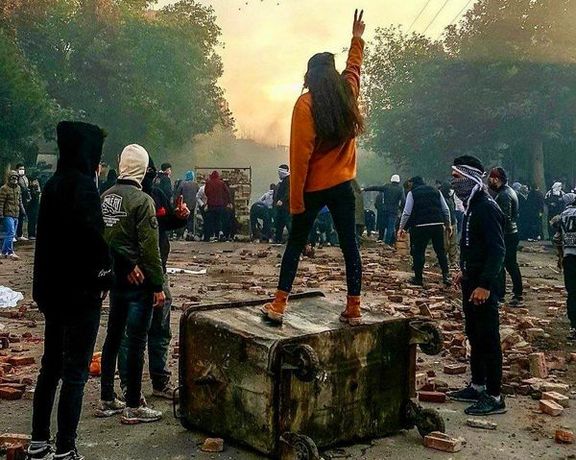
About 30 civil rights activists have been arrested only this week while several detained activists have announced hunger strikes in support of the expected protests.
During the past few days, state media has reported the dismantling of several groups accusing them of planning to carry out “acts of sabotage and terrorist operations” across the country. The IRGC said Thursday that 25 members of one of these “sabotage groups” were arrested in the northern Gilan province, while on Wednesday, the IRGC’s Intelligence Organization announced it had identified and dealt “a blow to some members of a riot organization network" across the country. In its statement, the IRGC claimed the network's members were being funded by the US State Department and led by the Freedom House, a Washington-based advocacy group, and the Nonviolent Initiative for Democracy, a Massachusetts-based NGO.
The IRGC commander in the western province of Ilam said a “sabotage group” was disbanded in the city of Abdanan, and the IRGC in the Alborz province said they rounded up protest leaders in Savojbolagh. In East Azarbaijan province, admins of a Telegram channel were arrested for encouraging protests.
Since the protests began on September 16 last year, about 600 protesters have been killed and tens of thousands arrested. According to the Oslo-based non-profit Iran Human Rights, Tehran executed approximately 697 people between September 2022 and September 2023, including seven for activities related to the protests. Iranian courts have sentenced another 10 protestors to death, and 82 are facing charges that include the death penalty. “The surge of executions in Iran shows that the regime is desperate, lashing out because its efforts to crush the nationwide uprising over the past year have clearly failed,” said Tzvi Kahn from the US-based Foundation for Defense of Democracies.
During the past several weeks, the regime has arrested, summoned or harassed the families of victims as well as the protesters who were temporarily detained, threatening them against participating in rallies or events this week. In addition to firing dozens of academics, warnings have been given to professors, students, and workers of several organizations to discourage any acts that can be seen as a sign of solidarity with the protests.
Human Rights Watch said on Friday that Iranian authorities have ramped up their repression on civil society for the one-year anniversary of the death in custody of Mahsa Jina Amini, calling on all delegations of UN member states meeting Iranian counterparts during the annual UN General Assembly this week in New York to raise the plight of activists and put it at the center of their engagement.
“Iranian authorities are trying to impose a chokehold on dissent to prevent public commemoration of Mahsa Jina Amini’s death in custody, which has become the symbol of the government’s systematic oppression of women, injustice and impunity,” said Tara Sepehri Far, senior Iran researcher at the rights group. “But Iranian authorities can't erase the mounting frustration, louder calls for fundamental change, and the resistance and solidarity in Iranian society in the face of mounting repression.”
On Thursday, the UN’s Independent International Fact-Finding Mission on the Islamic Republic of Iran said the state harassment of women and girls is on the rise, as authorities are exacerbating punitive measures against those exercising their fundamental rights, including freedom of religion, freedom of expression and peaceful assembly.
“Since Jina Mahsa’s death in custody, the Government of the Islamic Republic of Iran has failed to ensure truth, justice and reparations to her family, or to families of other victims, women, girls and all protesters who have been subjected to violations of fundamental human rights,” Sara Hossain, Chair of the Fact-Finding Mission, said. “Instead, the Islamic Republic is doubling down on repression and reprisals against its citizens and seeking to introduce new and more draconian laws that severely restrict further the rights of women and girls.”
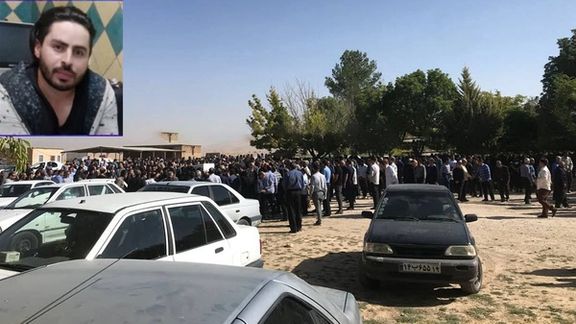
Kurdish-Iranians gathered for the burial of Hamed Baqeri (Bagheri) on Friday, in spite of threats from regime security.
The young Iranian-Kurd was recently shot by regime forces while protesting in Karaj, with photos of the large attendance for his funeral appearing online as a mark of defiance to the authorities, which has been clamping down on all mass gatherings in the lead-up to Saturday's anniversary of the death of Mahsa Amini.
Mourners traveled from regions such as Eslamshahr-e Gharb in western Kermanshah province to the village of Tajar-e-Akbar to participate in the burial rites for Baqeri, according to Hengaw Human Rights Organization.
Citing sources close to Baqeri's family, Hengaw claims that the young man had expressed protest slogans against the dictatorship of the Islamic Republic even before the tragic incident in which he is believed to have died from four bullet wounds from security forces.
After the incident, Hamid Hadavand, commander of the Alborz Law Enforcement, referred to the young man as a "hooligan with a machete" during an interview with the Islamic Republic government's news agency, IRNA. He claims Baqeri allegedly "savagely attacked both civilians and law enforcement agents in Karaj" and was subsequently detained at the scene after officers resorted to gunfire.
Hengaw denies the claims and has accused Iran's state media of engaging in an "organized" dissemination of news containing "misleading and false information."
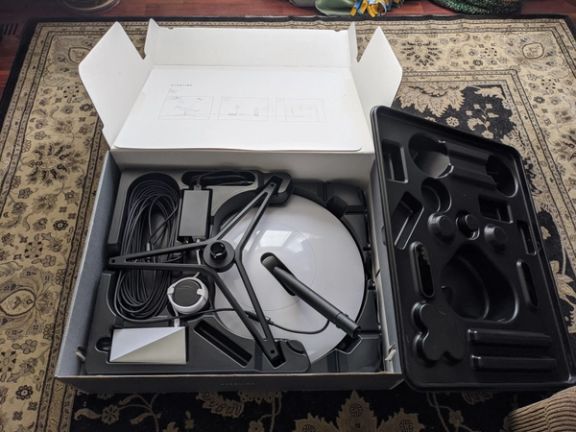
US NGO United Against Iranian Nuclear (UANI) has unveiled an initiative to provide internet services to Iranians in the face of state's access denial to citizens.
The group has managed to secure the initiative, Project Constellation, through the issuance of General License D-2, which authorizes an exemption to US sanctions for "discrete internet services".
The Starlink satellite project website says "the US government has taken action to support the free flow of information to and from the Iranian people".
It explained: "This license is crucial as it helps keep Iranians online amid pervasive efforts of the Islamic Republic to censor and shut down the internet early and often when there is even a hint of protests being planned."
Mass shutdowns have left millions cut off from the internet across Iran as the government continues its blanket censorship in a bid to prevent more protests, leaving many without access to work and vital services.
Starlink receivers began to be smuggled into Iran last September, in case of the regime enforcing a total blackout. Starlink, operated by Elon Musk’s SpaceX, is a global network of low-orbit satellites that bypasses the terrestrial internet, and helped restore connectivity in Ukraine after the Russian invasion.
Project Constellation will also offer a fundraising platform, where supporters of the Iranian people can donate funds to send Starlink satellite internet terminals to keep Iranians online. "Based upon the best efforts of our confidential partners, UANI expects to achieve a high rate of Starlink systems successfully smuggled into Iran," the website said.
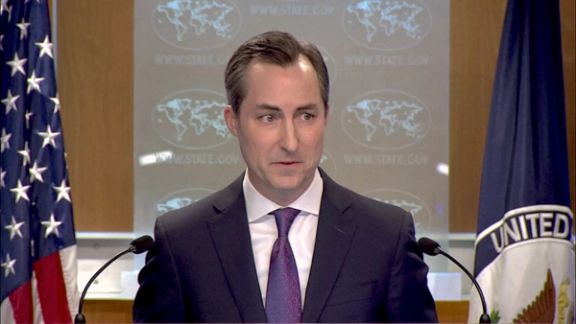
The US Department of State raised concerns about the Iranian regime's ongoing intimidation of the families of slain protesters and journalists.
Spokesman Matthew Miller noted on Thursday that this marks the fourth time in the last two weeks that Mahsa Amini's father has been summoned for questioning by the Iranian authorities.
He stated, "The world is watching its treatment of these families and the ongoing intimidation of journalists and abuse of peaceful protesters, and we will continue to watch it closely and take whatever steps are appropriate to respond to it."
The comments come in the wake of the recent release of approximately $6 billion in Iranian assets frozen abroad by the US government. This release is part of a larger deal that includes the exchange of five US prisoners held in Iran for five Iranians detained by the United States. However, the move has sparked controversy, with many Iranians condemning it as a “ransom payment”.
Notably, the hostage exchange deal left unresolved three other US cases – Jamshid Sharmahd, Afshin Vatani, and Shahab Dalili.
During a hearing before the Foreign Affairs Committee in Congress on Thursday, concerns were raised that the deal does not effectively deter further hostage-taking and allows the Iranian regime to divert resources meant for humanitarian purposes toward security forces, missile programs, and proxy groups. It also threatens to undermine the international sanctions regime.
However, Miller reiterated that the released funds would only be accessible to Iran for humanitarian purposes, such as acquiring food, medicine, and other necessities that directly benefit the Iranian people rather than the regime.






